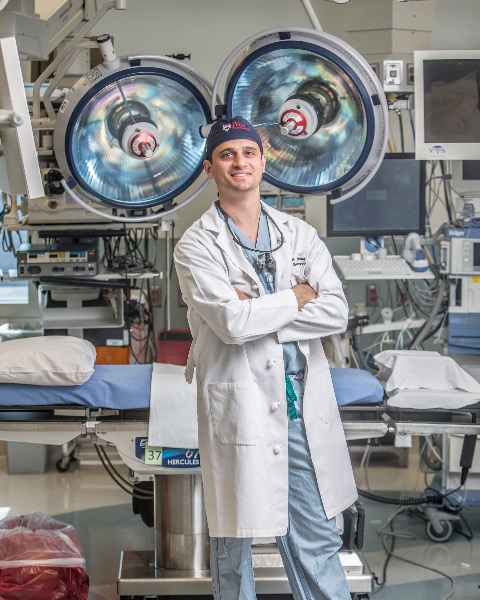
Neil R. Malhotra, MD (he/him/his)
Associate Professor
Department of Neurosurgery, University of Pennsylvania
Dr. Neil Malhotra is chief of neurosurgery at the Hospital of the University of Pennsylvania, Vice Chairman, Associate Professor, Associate Residency Director, Frazier Scholar Fellowship Director, and McKenna Scholar in Statistics Fellowship Director in the Department of Neurological Surgery at the University of Pennsylvania. Dr. Malhotra directs the EpiLog outcomes lab and co-directs the Restorative Spinal Therapy (ReST) Laboratory / Translational Spine Research Lab (TSRL).
Dr. Malhotra is committed to advancing solutions for complex spinal oncologic and degenerative conditions. Dr. Malhotra’s teams (1) work with bench models characterizing native tissue structure and function, (2) develop small and large animal models, (3) perform clinical research, and (4) design and initiate prospective clinical trials to seek better alternatives for patients suffering from pathological spinal conditions.
In the TSRL and ReST lab, the biomechanical, structural, and ultrastructure changes of intervertebral disc degeneration are studied and disease-altering therapeutic approaches are developed. Research work is supported by the NIH, the Department of Veterans Affairs, and private foundations.
In the EpiLog outcomes laboratory, the Malhotra team builds electronic health record (EHR) modifications to study undesirable clinical outcomes and develop predictive models to optimize risk stratification. Further, EHR modifications support prospective clinical trials to enhance patient care.
Dr. Malhotra, recognizing the capacity of the Patient’s EpiLog to identify disparities in care, in 2015, initiated a splinter lab, the Equity State Lab to study sources of disparity of outcome related to social determinants of health.
Dr. Malhotra is a member of the American Association of Neurological Surgeons, the Congress of Neurological Surgeons, the Pennsylvania State Neurosurgical Society, and the Orthopedic Research Society, among others.
Dr. Malhotra has a proven track record of successfully leading collaborative teams and bringing projects to fruition. He has published more than 130 research manuscripts and has mentored >30 research fellows, statistical fellows, and research residents . As a spinal surgeon-scientist Malhotra is uniquely positioned to study the human spine in decline as well as identify therapeutic opportunities.
Poster(s):
-
Friday, April 21, 2023Friday, April 21, 2023
